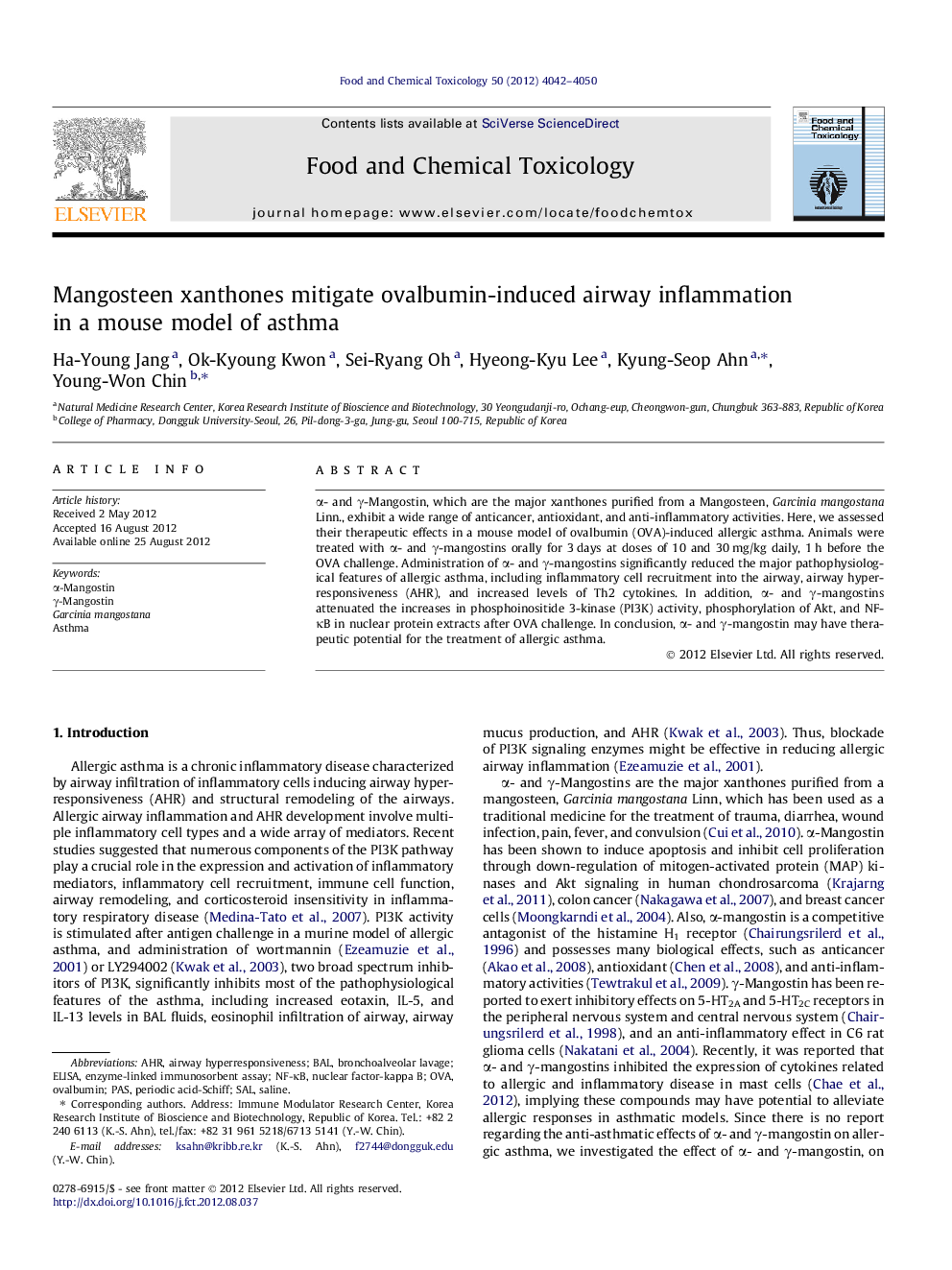| Article ID | Journal | Published Year | Pages | File Type |
|---|---|---|---|---|
| 5852319 | Food and Chemical Toxicology | 2012 | 9 Pages |
α- and γ-Mangostin, which are the major xanthones purified from a Mangosteen, Garcinia mangostana Linn., exhibit a wide range of anticancer, antioxidant, and anti-inflammatory activities. Here, we assessed their therapeutic effects in a mouse model of ovalbumin (OVA)-induced allergic asthma. Animals were treated with α- and γ-mangostins orally for 3 days at doses of 10 and 30 mg/kg daily, 1 h before the OVA challenge. Administration of α- and γ-mangostins significantly reduced the major pathophysiological features of allergic asthma, including inflammatory cell recruitment into the airway, airway hyperresponsiveness (AHR), and increased levels of Th2 cytokines. In addition, α- and γ-mangostins attenuated the increases in phosphoinositide 3-kinase (PI3K) activity, phosphorylation of Akt, and NF-κB in nuclear protein extracts after OVA challenge. In conclusion, α- and γ-mangostin may have therapeutic potential for the treatment of allergic asthma.
⺠Mangosteen xanthones reverse pathophysiological features of ovalbumin-induced mouse asthma model. ⺠Suppression of PI3K, Akt, and PTEN are involved in mitigating allergic asthma. ⺠The present results suggest potentials of α-and γ-mangostins as anti-asthmatic substances.
